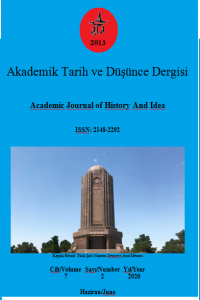Epic Time in Azerbaijan Folk Tales (Based on Folk Tales Gathered in Nakhchivan)
The article investigates the characteristic features of the epic time in the folk tales gathered in Nakhchivan. It is noted that epic time is formed according to the poetic features of folk tale groups, their social functions, the idea they want to instill in the society, and it is perceived as a subjective time. In the fairy tales, it has a fantastic character and it is given with fantastic lines. The article also notes that along with space, time can form the poetic system of folk tales and also become a distinguishing indication of folktale groups. Taking into account the features of the epic time, the article searches the distinguishing means of tale groups and the meanings they express on the basis of examples of folk tales gathered in Nakhchivan. The article also mentions that in fairy tales, the one who has magical powers is also the master of time. He who has magical powers can take the time back or forth, bring a dead person back to life, and so on. In religious tales, time is presented on the basis of religious and moral values, and the existence of time beyond human will is brought to the fore. It also analyzes the fact that time is not subject to the man, but the man is subject to him, God is the judge of the time, and that the time is subservient to him because he is in control of everything.
Epic Time in Azerbaijan Folk Tales (Based on Folk Tales Gathered in Nakhchivan)
The article investigates the characteristic features of the epic time in the folk tales gathered in Nakhchivan. It is noted that epic time is formed according to the poetic features of folk tale groups, their social functions, the idea they want to instill in the society, and it is perceived as a subjective time. In the fairy tales, it has a fantastic character and it is given with fantastic lines. The article also notes that along with space, time can form the poetic system of folk tales and also become a distinguishing indication of folktale groups. Taking into account the features of the epic time, the article searches the distinguishing means of tale groups and the meanings they express on the basis of examples of folk tales gathered in Nakhchivan. The article also mentions that in fairy tales, the one who has magical powers is also the master of time. He who has magical powers can take the time back or forth, bring a dead person back to life, and so on. In religious tales, time is presented on the basis of religious and moral values, and the existence of time beyond human will is brought to the fore. It also analyzes the fact that time is not subject to the man, but the man is subject to him, God is the judge of the time, and that the time is subservient to him because he is in control of everything.
